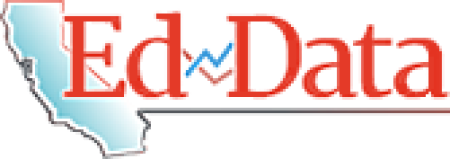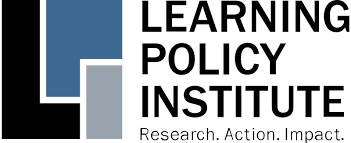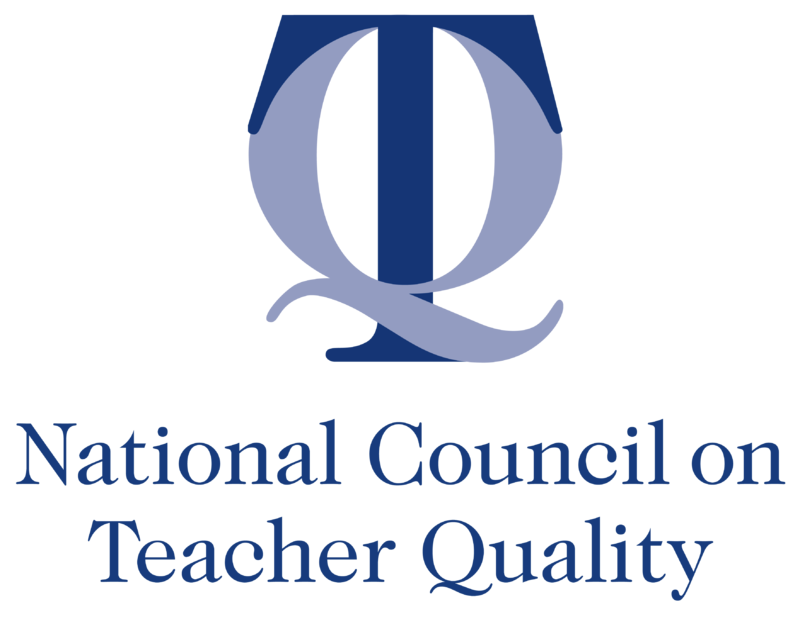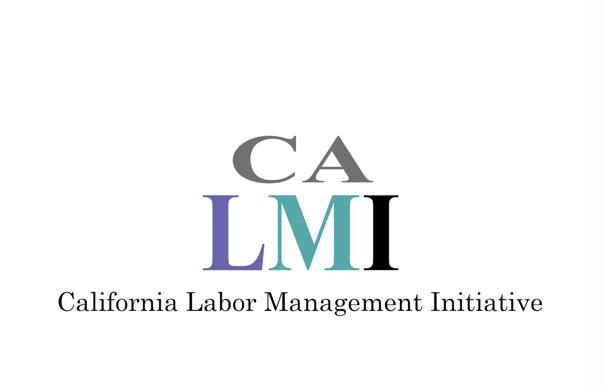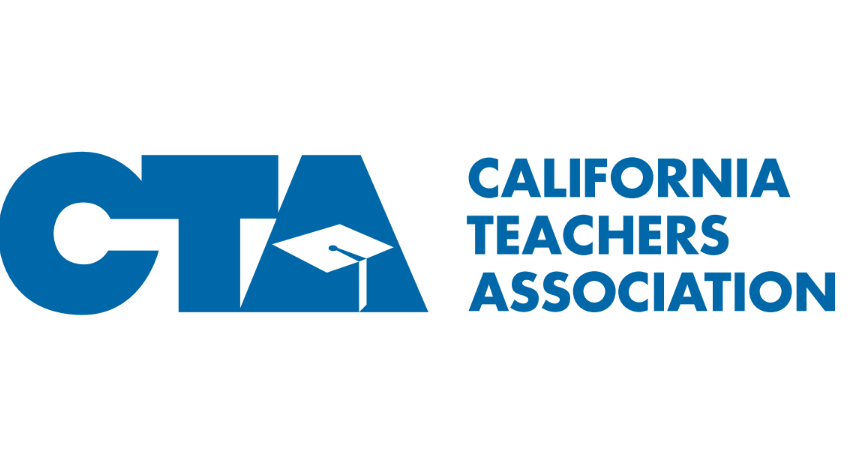Community
Anaheim Elementary's family and community engagement is partial foundations to improve educational outcomes.
How did we determine this? We evaluated the following indicators:
What Can You Do With This Information?
Californians for Justice (CFJ): Student Engagement
CFJ maintains that by seeing young people as experts on their educational experiences we can shift school culture, improve academic outcomes, and develop lifelong community and civic leaders. This starts by ensuring that every student, especially the voices and experiences of low-income students of color, are heard, valued, and reflected in the continuous improvement of their schools.
https://caljustice.org/issues/student-engagement/Californians for Justice School Funding and LCFF
This resource explains the Local Control Funding Formula (LCFF).
https://caljustice.org/issues/school-funding/Student Voice Continuum: How to Build Student Power
The Student Voice Continuum can allow organizations to see how to level up student voice in their work — building engagement and racial equity as they move toward student governance.
https://caljustice.org/resource/student-voice-continuum-how-to-build-student-power/Financial Management
Anaheim Elementary's financial management is strong foundations to improve educational outcomes.
How did we determine this? We evaluated the following indicators:
What Can You Do With This Information?
PACE Education Finance
PACE research in this area is focused on building and advancing the evidence base on how to achieve equitable and adequate funding that leads to improved outcomes.
https://edpolicyinca.org/topics/education-financeEd-Data
Ed-Data has detailed 2021-22 financial data and comparisons for California’s K-12 school districts and county offices of education. The reports, which are unaudited actuals, include data on school district revenues and expenses, the current expense of education calculation, and more. Financial data are available at the school district and state levels only. From any district or county office of education profile, click the financial data tab to see the reports.
https://www.ed-data.org/article/New-on-Ed--Data#financeSchool Finance Resources
This page contains resources on school finance produced by the Learning Policy Institute and other research organizations and leading school finance researchers. Additional content will be added as it is published, including a series of reports on school finance currently being developed by the Learning Policy Institute.
https://learningpolicyinstitute.org/school-funding-resourcesLeadership & Governance
Anaheim Elementary's leadership and governance is strong foundations to improve educational outcomes.
How did we determine this? We evaluated the following indicators:
What Can You Do With This Information?
PACE Educational Governance and Policy
PACE research in this area is designed to support the continued development of systems, and strengthen educational governance at all levels.
https://edpolicyinca.org/topics/educational-governance-policyCCEE Center for Teaching, Learning, & Leading
The Center for Teaching, Learning, & Leading works in alliance with educators to improve teaching, learning, and leadership so every student is inspired and prepared to thrive as their best self. They do this by advising County Offices of Education and Local Education Agencies, identifying school turnaround principles that effectively build capacity, and building a professional learning infrastructure focused on learning acceleration in Literacy, Mathematics, and Language Development.
https://ccee-ca.org/center-for-teaching-learning-leading/CCEE Center for Innovation, Instruction, & Impact
The Center for Innovation, Instruction, & Impact seeks and amplifies best practices and resources from educators and schools to collaboratively provide students in California with what they need to thrive. They do this by designing and implementing strategies and initiatives to share lessons learned from their work and emerging/best practices from the field to support sustained improvement for students, collecting and analyzing internal programs and statewide data to measure student outcomes and impact of instructional supports, and developing structures for identifying and developing professional learning resources.
https://ccee-ca.org/center-for-innovation-instruction-impact/School Personnel
Anaheim Elementary's school personnel is partial foundations to improve educational outcomes.
How did we determine this? We evaluated the following indicators:
What Can You Do With This Information?
NCTQ Retention and Tenure
School districts need to keep their effective teachers. Better pay certainly helps and so does providing more career advancement opportunities that allow teachers to stay in the classroom. The first step is to cultivate a school environment that values excellence and where great teachers can thrive as they work alongside each other.
https://www.nctq.org/policy-area/Retention-and-TenureNCTQ Teacher Prep Review
The NCTQ Teacher Prep Review evaluates the quality of programs that provide preservice preparation of teachers. The Review database includes both traditional and non-traditional programs.
https://www.nctq.org/review/homeNCTQ Principal Evaluation and Observation
The NCTQ State Teacher Policy Database provides access to information on state policies, laws, and regulations that impact teacher quality — ranging from teacher preparation, licensing, and evaluation to compensation, teacher diversity, and hiring and assignment. The NCTQ examines the principal evaluation policies across all states.
https://www.nctq.org/yearbook/national/Principal-Evaluation-and-Observation-95Work Environment
Anaheim Elementary's work environment is partial foundations to improve educational outcomes.
How did we determine this? We evaluated the following indicators:
What Can You Do With This Information?
CA Labor Management Initiative
Since its launch in 2015, the California Labor Management Initiative (CA LMI) has sought to make collaboration between labor and management an integral part of the continuous improvement of public schools in California. The CA LMI works with a strong coalition that includes the California Department of Education, the Association of California School Administrators, the California Federation of Teachers, the California School Boards Association, the California School Employees Association, the California Teachers Association, the California County Superintendents Educational Services Association, the California Collaborative for Educational Excellence, and numerous school districts statewide.
https://drive.google.com/file/d/1RqUaih3XDhRvgbsJneqSwAmadQaKfYtl/viewCalifornia Teachers Association
The California Teachers Association exists to protect and promote the well-being of its members; to improve the conditions of teaching and learning; to advance the cause of free, universal, and quality public education for all students; to ensure that the human dignity and civil rights of all children, youth, and adults are protected; and to secure a more just, equitable, and democratic society.
https://www.cta.org/for-educators/meet-cta/espCalifornia Teachers Association: Your Rights
CTA members have the legal right to a safe and healthy workplace. These resources help one understand, preserve, and enhance rights.
https://www.cta.org/for-educators/your-rightsDistrict Readiness Ratings
How did we determine this? We evaluated five domains integral to sustain change initiatives. Learn about our methodology.
For the initial iteration of the DRI, the database only includes LEAs identified as Elementary, Unified, and High
School Districts with 2,500 or more enrolled students. The DRI does not include:
- Districts with student enrollment under 2,500
- Charter schools
- County Offices of Education
- Private schools
- Unique Local Educational Agencies (e.g., State Special Schools; Regional Occupation Centers)

 Community
Community

 Finance
Finance

 Leadership
Leadership

 Personnel
Personnel

 Workplace
Workplace
For the initial iteration of the DRI, the database only includes LEAs identified as Elementary, Unified, and High
School Districts with 2,500 or more enrolled students. The DRI does not include:
- Districts with student enrollment under 2,500
- Charter schools
- County Offices of Education
- Private schools
- Unique Local Educational Agencies (e.g., State Special Schools; Regional Occupation Centers)
Domain: Community
Anaheim Elementary has partial foundations in family and community engagement.
Districts with Partial Foundations in a domain earned between 50% to 69.99% of Indicator points possible.
How did we determine this? We evaluated the following indicators:
For the initial iteration of the DRI, the database only includes LEAs identified as Elementary, Unified, and High
School Districts with 2,500 or more enrolled students. The DRI does not include:
- Districts with student enrollment under 2,500
- Charter schools
- County Offices of Education
- Private schools
- Unique Local Educational Agencies (e.g., State Special Schools; Regional Occupation Centers)
For the initial iteration of the DRI, the database only includes LEAs identified as Elementary, Unified, and High
School Districts with 2,500 or more enrolled students. The DRI does not include:
- Districts with student enrollment under 2,500
- Charter schools
- County Offices of Education
- Private schools
- Unique Local Educational Agencies (e.g., State Special Schools; Regional Occupation Centers)
Domain: Financial Management
Anaheim Elementary has strong foundations in financial management.
Districts with Strong Foundations in a domain earned 70% or more of Indicator points possible.
How did we determine this? We evaluated the following indicators:
For the initial iteration of the DRI, the database only includes LEAs identified as Elementary, Unified, and High
School Districts with 2,500 or more enrolled students. The DRI does not include:
- Districts with student enrollment under 2,500
- Charter schools
- County Offices of Education
- Private schools
- Unique Local Educational Agencies (e.g., State Special Schools; Regional Occupation Centers)
For the initial iteration of the DRI, the database only includes LEAs identified as Elementary, Unified, and High
School Districts with 2,500 or more enrolled students. The DRI does not include:
- Districts with student enrollment under 2,500
- Charter schools
- County Offices of Education
- Private schools
- Unique Local Educational Agencies (e.g., State Special Schools; Regional Occupation Centers)
Domain: Leadership & Governance
Anaheim Elementary has strong foundations in leadership and governance.
Districts with Strong Foundations in a domain earned 70% or more of Indicator points possible.
How did we determine this? We evaluated the following indicators:
For the initial iteration of the DRI, the database only includes LEAs identified as Elementary, Unified, and High
School Districts with 2,500 or more enrolled students. The DRI does not include:
- Districts with student enrollment under 2,500
- Charter schools
- County Offices of Education
- Private schools
- Unique Local Educational Agencies (e.g., State Special Schools; Regional Occupation Centers)
For the initial iteration of the DRI, the database only includes LEAs identified as Elementary, Unified, and High
School Districts with 2,500 or more enrolled students. The DRI does not include:
- Districts with student enrollment under 2,500
- Charter schools
- County Offices of Education
- Private schools
- Unique Local Educational Agencies (e.g., State Special Schools; Regional Occupation Centers)
Domain: School Personnel
Anaheim Elementary has partial foundations in school personnel.
Districts with Partial Foundations in a domain earned between 50% to 69.99% of Indicator points possible.
How did we determine this? We evaluated the following indicators:
For the initial iteration of the DRI, the database only includes LEAs identified as Elementary, Unified, and High
School Districts with 2,500 or more enrolled students. The DRI does not include:
- Districts with student enrollment under 2,500
- Charter schools
- County Offices of Education
- Private schools
- Unique Local Educational Agencies (e.g., State Special Schools; Regional Occupation Centers)
For the initial iteration of the DRI, the database only includes LEAs identified as Elementary, Unified, and High
School Districts with 2,500 or more enrolled students. The DRI does not include:
- Districts with student enrollment under 2,500
- Charter schools
- County Offices of Education
- Private schools
- Unique Local Educational Agencies (e.g., State Special Schools; Regional Occupation Centers)
Domain: Work Environment
Anaheim Elementary has strong foundations in work environment.
Districts with Strong Foundations in a domain earned 70% or more of Indicator points possible.
How did we determine this? We evaluated the following indicators:
For the initial iteration of the DRI, the database only includes LEAs identified as Elementary, Unified, and High
School Districts with 2,500 or more enrolled students. The DRI does not include:
- Districts with student enrollment under 2,500
- Charter schools
- County Offices of Education
- Private schools
- Unique Local Educational Agencies (e.g., State Special Schools; Regional Occupation Centers)
For the initial iteration of the DRI, the database only includes LEAs identified as Elementary, Unified, and High
School Districts with 2,500 or more enrolled students. The DRI does not include:
- Districts with student enrollment under 2,500
- Charter schools
- County Offices of Education
- Private schools
- Unique Local Educational Agencies (e.g., State Special Schools; Regional Occupation Centers)
What Can You Do With This Information?
California Collaborative for Educational Excellence
The California Collaborative for Educational Excellence (CCEE) was established by the California State Legislature and Governor to advise and assist school districts, county offices of education, and charter schools (local educational agencies [LEAs] achieve the goals and objectives in their Local Control and Accountability Plans (LCAPs). It was created as part of the Local Control Funding Formula (LCFF) legislation that redesigned California ‘s school funding formulas to ensure that there would be sufficient support for students who required additional resources to ensure their success.
https://ccee-ca.org/California School Dashboard
The California School Dashboard provides parents and educators with meaningful information on school and district progress so they can participate in decisions to improve student learning.
https://www.caschooldashboard.org/Ed-Data
Ed-Data is a partnership of the California Department of Education, EdSource, and the Fiscal Crisis and Management Assistance Team/California School Information Services (FCMAT/CSIS) designed to offer educators, policy makers, the legislature, parents, and the public quick access to timely and comprehensive data about K-12 education in California.
http://www.ed-data.org/What Can You Do With This Information?
Californians for Justice (CFJ): Student Engagement
CFJ maintains that by seeing young people as experts on their educational experiences we can shift school culture, improve academic outcomes, and develop lifelong community and civic leaders. This starts by ensuring that every student, especially the voices and experiences of low-income students of color, are heard, valued, and reflected in the continuous improvement of their schools.
https://caljustice.org/issues/student-engagement/Californians for Justice School Funding and LCFF
This resource explains the Local Control Funding Formula (LCFF).
https://caljustice.org/issues/school-funding/Student Voice Continuum: How to Build Student Power
The Student Voice Continuum can allow organizations to see how to level up student voice in their work — building engagement and racial equity as they move toward student governance.
https://caljustice.org/resource/student-voice-continuum-how-to-build-student-power/What Can You Do With This Information?
PACE Education Finance
PACE research in this area is focused on building and advancing the evidence base on how to achieve equitable and adequate funding that leads to improved outcomes.
https://edpolicyinca.org/topics/education-financeEd-Data
Ed-Data has detailed 2021-22 financial data and comparisons for California’s K-12 school districts and county offices of education. The reports, which are unaudited actuals, include data on school district revenues and expenses, the current expense of education calculation, and more. Financial data are available at the school district and state levels only. From any district or county office of education profile, click the financial data tab to see the reports.
https://www.ed-data.org/article/New-on-Ed--Data#financeSchool Finance Resources
This page contains resources on school finance produced by the Learning Policy Institute and other research organizations and leading school finance researchers. Additional content will be added as it is published, including a series of reports on school finance currently being developed by the Learning Policy Institute.
https://learningpolicyinstitute.org/school-funding-resourcesWhat Can You Do With This Information?
PACE Educational Governance and Policy
PACE research in this area is designed to support the continued development of systems, and strengthen educational governance at all levels.
https://edpolicyinca.org/topics/educational-governance-policyCCEE Center for Teaching, Learning, & Leading
The Center for Teaching, Learning, & Leading works in alliance with educators to improve teaching, learning, and leadership so every student is inspired and prepared to thrive as their best self. They do this by advising County Offices of Education and Local Education Agencies, identifying school turnaround principles that effectively build capacity, and building a professional learning infrastructure focused on learning acceleration in Literacy, Mathematics, and Language Development.
https://ccee-ca.org/center-for-teaching-learning-leading/CCEE Center for Innovation, Instruction, & Impact
The Center for Innovation, Instruction, & Impact seeks and amplifies best practices and resources from educators and schools to collaboratively provide students in California with what they need to thrive. They do this by designing and implementing strategies and initiatives to share lessons learned from their work and emerging/best practices from the field to support sustained improvement for students, collecting and analyzing internal programs and statewide data to measure student outcomes and impact of instructional supports, and developing structures for identifying and developing professional learning resources.
https://ccee-ca.org/center-for-innovation-instruction-impact/What Can You Do With This Information?
NCTQ Retention and Tenure
School districts need to keep their effective teachers. Better pay certainly helps and so does providing more career advancement opportunities that allow teachers to stay in the classroom. The first step is to cultivate a school environment that values excellence and where great teachers can thrive as they work alongside each other.
https://www.nctq.org/policy-area/Retention-and-TenureNCTQ Teacher Prep Review
The NCTQ Teacher Prep Review evaluates the quality of programs that provide preservice preparation of teachers. The Review database includes both traditional and non-traditional programs.
https://www.nctq.org/review/homeNCTQ Principal Evaluation and Observation
The NCTQ State Teacher Policy Database provides access to information on state policies, laws, and regulations that impact teacher quality — ranging from teacher preparation, licensing, and evaluation to compensation, teacher diversity, and hiring and assignment. The NCTQ examines the principal evaluation policies across all states.
https://www.nctq.org/yearbook/national/Principal-Evaluation-and-Observation-95What Can You Do With This Information?
CA Labor Management Initiative
Since its launch in 2015, the California Labor Management Initiative (CA LMI) has sought to make collaboration between labor and management an integral part of the continuous improvement of public schools in California. The CA LMI works with a strong coalition that includes the California Department of Education, the Association of California School Administrators, the California Federation of Teachers, the California School Boards Association, the California School Employees Association, the California Teachers Association, the California County Superintendents Educational Services Association, the California Collaborative for Educational Excellence, and numerous school districts statewide.
https://drive.google.com/file/d/1RqUaih3XDhRvgbsJneqSwAmadQaKfYtl/viewCalifornia Teachers Association
The California Teachers Association exists to protect and promote the well-being of its members; to improve the conditions of teaching and learning; to advance the cause of free, universal, and quality public education for all students; to ensure that the human dignity and civil rights of all children, youth, and adults are protected; and to secure a more just, equitable, and democratic society.
https://www.cta.org/for-educators/meet-cta/espCalifornia Teachers Association: Your Rights
CTA members have the legal right to a safe and healthy workplace. These resources help one understand, preserve, and enhance rights.
https://www.cta.org/for-educators/your-rights

